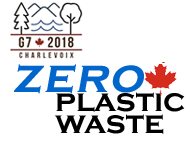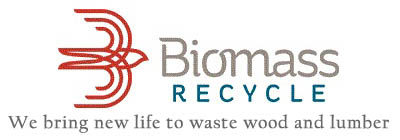|
|

|
  
Feature

Update 2018/6/5
G7 Charlevoix Summit 2018
G7: GERMANY, WATER-RICH WITH REGULATIONS TO MAINTAIN HIGH QUALITY
This story is brought to you in part by

By Cori Marshall
The Group of 7 or G7 Summit begins this Friday in Charlevoix, the eastern part of the Capitale-Nationale region of Québec, and Québec City. The two-day gathering will bring together the leaders of the seven largest economies in the world.
WaterToday has covered Canadian water extensively, and with the Canadian Presidency of the G7 allows us to look at water in other highly industrialized states.
With that in mind, we begin our review of G7 water by taking a look at Germany. We contacted the Federal Ministry for the Environment, Nature Conservation and Nuclear Safety for insight into the quality of their drinking water as well as how they regulate oversight.
Nina Wettern, Spokesperson for Germany's Federal Ministry for the Environment, Nature Conservation and Nuclear Safety, explained that "the Drinking Water Ordinance (Trinkwasserverdnung) of the Federal Ministry of Health governs the quality of drinking water." She added that the ordinance is enforced at the federal 'Länder' level."
Wettern said that drinking water in Germany "must satisfy stringent quality requirements." The Drinking Water Ordinance is the legislation that "translates the 1998 EC Drinking Water Directive into national Law." Provisions in the Ordinance "include that drinking water must not only be free from unsafe levels of substances and pathogens but that it must also be 'pure and wholesome'."
Wettern underlined that "Germany is very rich in water resources." In fact, 2.2% of the German territory is covered by water, with 0.85% of that water in natural lakes. The rest of the freshwater is in eleven rivers.
"In total, about a quarter of the available water resources are being used, and some 4% of that amount is used as drinking water."
- Nina Wettern, Spokesperson Federal Ministry for the Environment
There is a desire for more water conservation in Germany. Wittern stressed that "using less water means, first and foremost, producing less wastewater, but also saving energy in water supply and wastewater treatment."
"The consumption of water has been decreasing in Germany over the past fifteen years," Wettern said, and "over the past three years, the average consumption of drinking water was between 120 and 123 litres daily per person."
According to McGill University's Water is Life webpage "the average Canadian uses about 329L of water" daily. In Québec, the number rises to about "400 L of water per person."
"Groundwater accounts for more than 70% of the drinking water in Germany, which makes it the most important resource for drinking water."
- Nina Wettern, Spokesperson Federal Ministry for the Environment
Wittern informed WaterToday that "apart from some regional exceptions, there are no problems regarding the amount of available groundwater."
There is variation in the available amount of water from region to region. Wittern said that "this is due to the different volume of precipitation, the amount of available groundwater and the existence of surface waters." she added that "another key aspect is water demand, which is particularly high in conurbations."
Wittern underlined that "the quality of drinking water in Germany is good or very good, [and] it is monitored at short intervals."
Like in Canada, there is variation in quality at the household level. Wittern explained that it "depends on the pipes and fittings and [quality] can be different from that in water works depending on the treatment process." She added that lead pipes "were used in private homes up until the 1970s, some households still show higher lead contents in their drinking water."
Consumption has been decreasing for more than a decade, and the population uses relatively low amounts. There are no significant issues with the potable water except in older homes and specific areas. With legislation that outlines the requirements for delivering drinking water, there is an importance to this indispensable resource in Germany.
|
|
|
Have a question? Give us a call 613-501-0175
All rights reserved 2026 - WATERTODAY - This material may not be reproduced in whole or in part and may not be distributed,
publicly performed, proxy cached or otherwise used, except with express permission.
|
| |